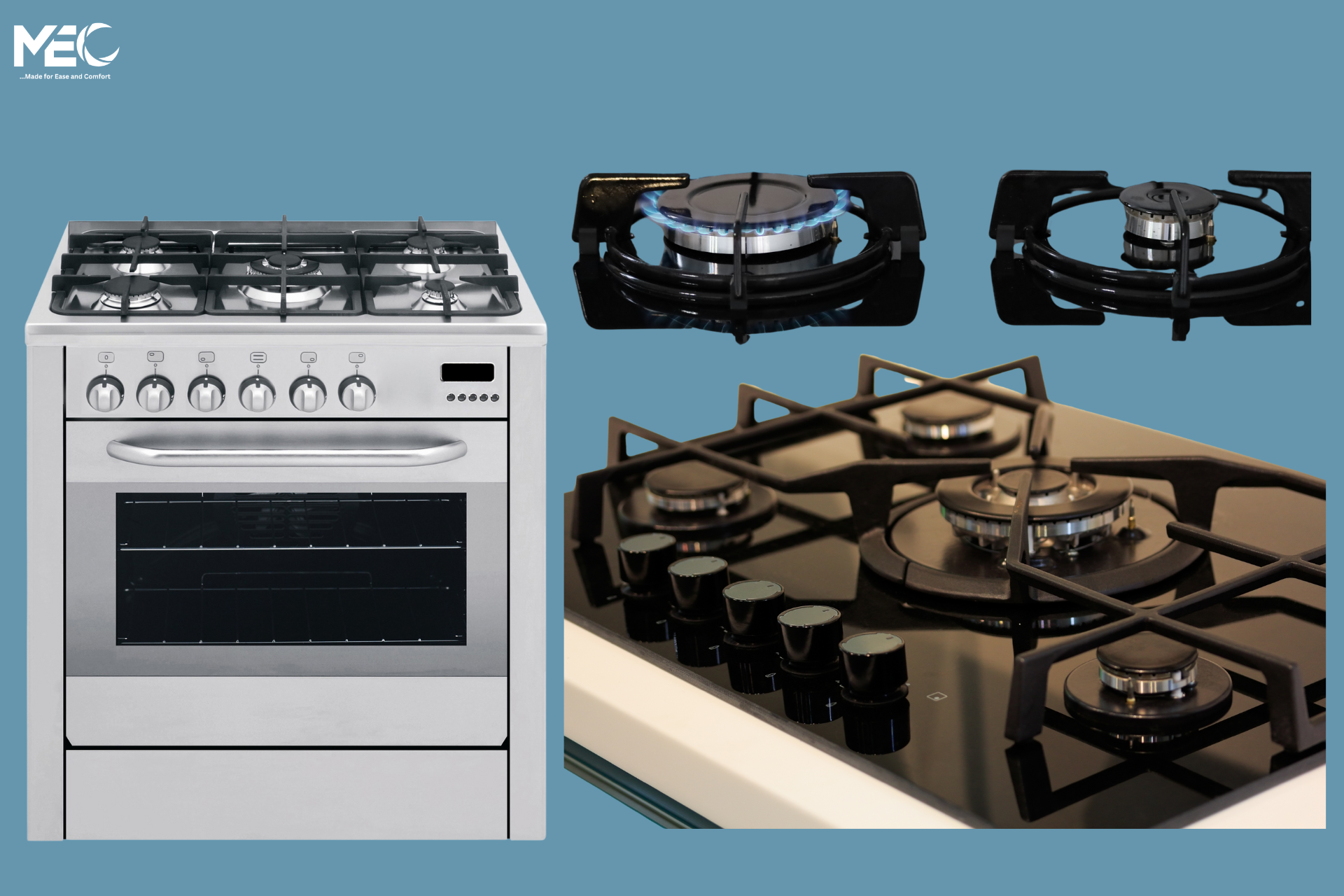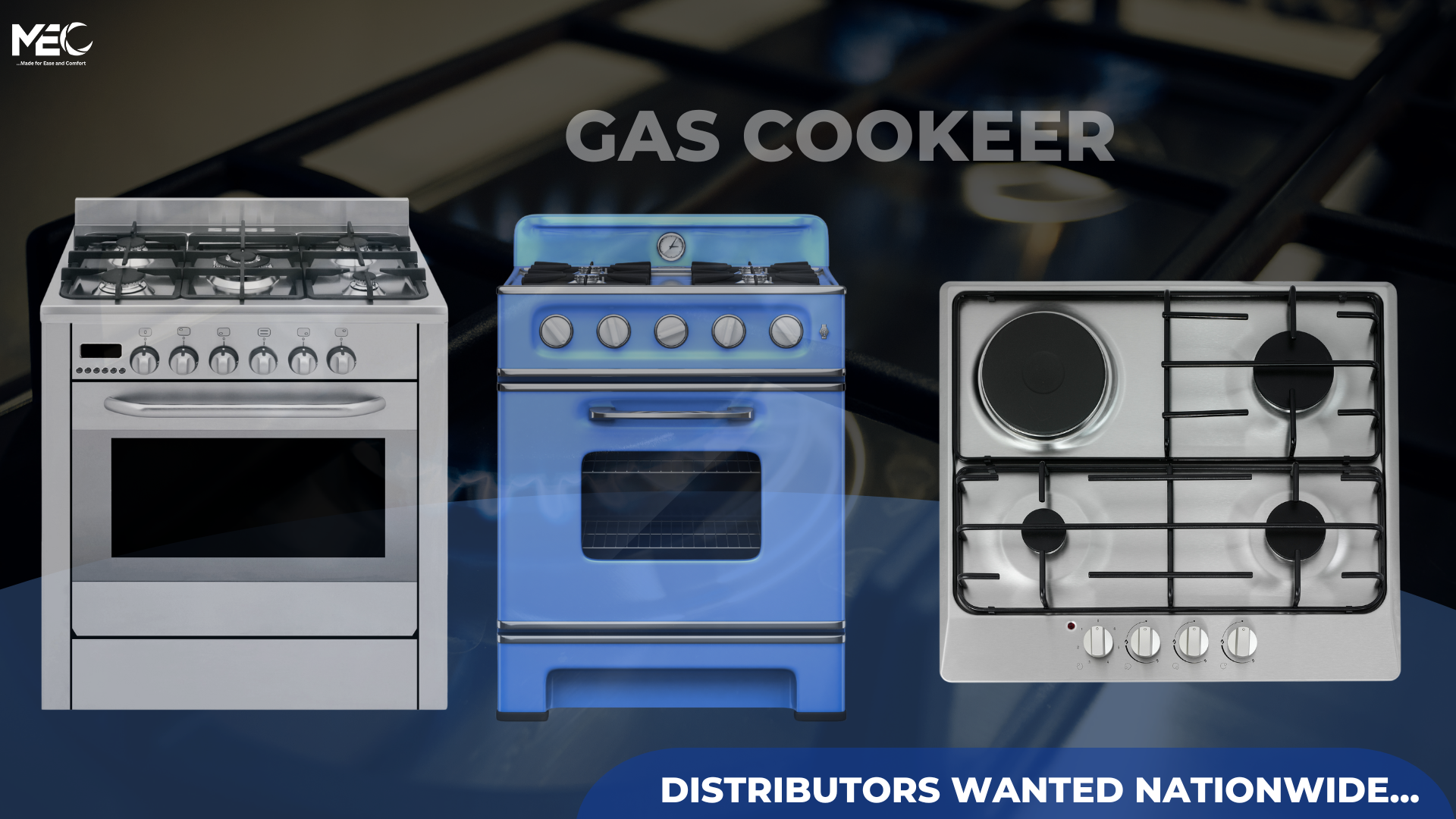
Gas cookers have been a staple in kitchens for decades, offering reliability, efficiency, and precision when it comes to cooking. Whether you’re an experienced chef or a home cook, a gas cooker can be an excellent addition to your kitchen setup. In this guide, we’ll explore everything you need to know about gas cookers, including their benefits, how to choose the right one, maintenance tips, and safety precautions.

Benefits of a Gas Cooker
- Instant Heat – Unlike electric cookers that take time to heat up, gas cookers provide instant heat, allowing you to start cooking immediately.
- Better Heat Control – The flame allows precise temperature control, making it easier to cook delicate dishes.
- Cost-Effective – Gas is generally cheaper than electricity in many regions, making gas cookers a cost-effective option for long-term use.
- Even Cooking – The flames distribute heat evenly across the cookware, preventing hot spots and ensuring consistent cooking results.
- Works During Power Outages – Unlike electric stoves, gas cookers don’t rely on electricity, meaning you can still cook when the power is out.
Distributors Wanted Nationwide
How to Choose the Right Gas Cooker
When selecting a gas cooker, consider the following factors:
- Size & Capacity – Choose a cooker that fits your kitchen space and meets your cooking needs. Standard sizes range from 50cm to 90cm in width.
- Number of Burners – Depending on your cooking habits, opt for a model with 2 to 6 burners.
- Oven Type – Some gas cookers come with gas ovens, while others have electric ovens for better baking control.
- Ignition System – Look for auto-ignition models for convenience and safety.
- Safety Features – Features like flame failure devices (FFD) ensure gas is cut off if the flame goes out, reducing the risk of leaks.
- Energy Efficiency – Check for energy efficiency ratings to choose an environmentally friendly model.
Maintenance Tips for a Gas Cooker
To ensure your gas cooker stays in top condition, follow these maintenance tips:
- Regular Cleaning – Clean the burners, grates, and oven after each use to prevent grease buildup.
- Check for Gas Leaks – Periodically inspect the gas hose and connections for leaks. If you smell gas, turn off the supply and ventilate the area.
- Unclog Burners – Use a needle or soft brush to remove any food debris blocking the burner holes.
- Use the Right Cookware – Flat-bottomed and properly sized cookware ensures even heat distribution and efficient cooking.
- Schedule Professional Servicing – Have a professional check your gas cooker annually to ensure it’s in safe working condition.
Safety Precautions When Using a Gas Cooker
- Proper Ventilation – Always cook in a well-ventilated kitchen to prevent gas buildup.
- Never Leave Unattended – Don’t leave the gas cooker on while unattended, especially when cooking with oil.
- Turn Off When Not in Use – Always switch off the gas supply when the cooker is not in use.
- Use a Gas Detector – Installing a gas detector in your kitchen can help detect leaks early.
- Keep Flammable Items Away – Avoid placing paper, cloth, or plastic near the burners.
A gas cooker is an essential kitchen appliance that offers efficiency, cost savings, and control over your cooking. By choosing the right model, maintaining it properly, and following safety precautions, you can enjoy a seamless and safe cooking experience. Whether you’re upgrading your kitchen or purchasing a new cooker, this guide will help you make an informed decision.